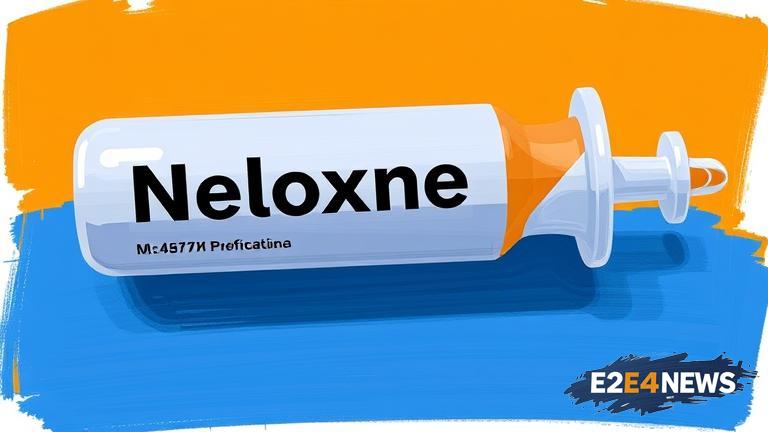The opioid epidemic has been a pressing concern in the United States, with thousands of lives lost to overdose each year. In response to this crisis, many Medicaid managed care plans have stepped up to provide coverage for naloxone, a medication that can reverse the effects of an opioid overdose. Naloxone, also known as Narcan, is a lifesaving drug that can be administered via injection or nasal spray. It works by binding to opioid receptors in the brain, blocking the effects of opioids and restoring breathing in individuals who have overdosed. The widespread coverage of naloxone by Medicaid managed care plans is a significant development in the fight against the opioid epidemic. According to recent data, a majority of these plans cover naloxone, making it more accessible to those who need it. This coverage is crucial, as naloxone is often the only medication that can reverse an opioid overdose. The medication is typically administered by emergency medical responders, but it can also be prescribed to individuals who are at risk of overdose. Many states have implemented laws and programs to increase access to naloxone, including allowing pharmacists to dispense the medication without a prescription. The coverage of naloxone by Medicaid managed care plans is an important step towards addressing the opioid epidemic, as it can help to reduce the number of overdose deaths. Additionally, the increased availability of naloxone can help to reduce the stigma associated with opioid addiction, encouraging more individuals to seek help. The opioid epidemic is a complex issue that requires a multifaceted approach, and the coverage of naloxone by Medicaid managed care plans is just one part of the solution. Other strategies, such as increasing access to addiction treatment and implementing policies to reduce opioid prescribing, are also necessary to address the crisis. Furthermore, the coverage of naloxone highlights the importance of Medicaid in addressing the opioid epidemic, as the program provides health coverage to millions of low-income individuals who are disproportionately affected by the crisis. The findings on naloxone coverage also underscore the need for continued efforts to address the social determinants of health that contribute to opioid addiction, such as poverty and lack of access to education and job opportunities. Overall, the widespread coverage of naloxone by Medicaid managed care plans is a positive development in the fight against the opioid epidemic, and it highlights the importance of continued efforts to address this complex and pressing issue.
